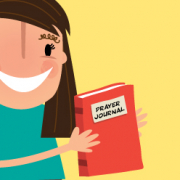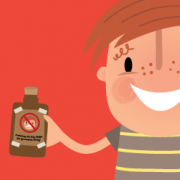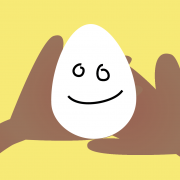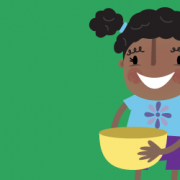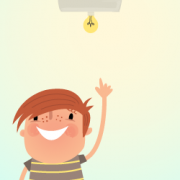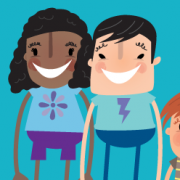Solving problems Jesus’ way
You will need:
a shoebox
tape
cotton balls
paper hearts or stickers
teddy bear pictures or stickers
wooden skewers
green felt-tip markers or paint
plastic wrap
a glue gun
sand – or something else to bury your treasure chest in.
In the summer, you might choose to bury your treasure outdoors in dirt or sand. In the winter, burying it in the snow would be a good option – or you might prefer to hide the box indoors in a load of laundry.
Prepare in advance by filling the treasure chest with the cotton balls, paper hearts, teddy bear stickers, wooden skewers and green felts or paint. Tape the box up well so it will be hard to open. Paste or draw a heart on the box, then wrap it in plastic wrap. Bury the box when your kids are not watching.
Part one: Clean your own heart first
- Begin by explaining to your children that they will be hunting for buried treasure. As you send them off on the hunt, ask them to practice being thoughtful and considerate of each other as they search.
- Once your kids have found the treasure chest, remind them again to be considerate of each other as they clean off the box. When the box is relatively clean, halt their activity at this point for a brief discussion.
- Read Matthew 7:1-5.
- Ask your kids, What do you think these verses mean when they say “a speck” and “a log” in someone’s eye?
Key concepts
Before we tell someone else what they’re doing wrong, we need to make sure that we are not doing that exact same sin! It’s easy to see what the other person is doing wrong, but if we stop and think about it, very often what bothers us most about others is something we often do ourselves.
For example, if you are complaining that your brother always gets to have things his way, stop and think for a few minutes – maybe it bothers you because it is actually you who always wants things your way.
Part two: In private, one-on-one
- Send your kids into another room to open the treasure chest without you present. Remind them to cooperate nicely as they work to open it. Once it’s open, they can return to show you the contents.
- Read Matthew 18:15-17.
Key concepts
In Matthew 18, we read we are to correct someone who has sinned against us by first talking with them one-on-one, before asking anyone else to become involved. Your first choice should always be to try and settle the problem between the two of you in private.
Part three: Gently, patiently and lovingly
Now you’ll start creating your “solving problems Jesus’ way craft.”
- Begin by gluing cotton balls to one third of your skewers. The cotton balls represent gentleness, and you’ll want to glue them at one end of each skewer, like flowers on a stem.
- As your kids work, read Galatians 6:1.
Questions for discussion
- What do you think the Bible means when it says to “restore someone with a spirit of gentleness”?
- What might the opposite of correcting someone with kindness and gentleness look like?
- Can you think of a time when someone correctly you harshly?
- How did being corrected harshly make you feel?
- Can you think of a time when someone correctly you gently?
- How did being corrected gently make you feel?
Key concepts
To restore someone gently means to offer correction in a kind and gentle way rather than in a harsh, aggressive or accusing way. When we are patient and considerate of each other, it makes it much easier to live at peace than when we are impatient and thoughtless.
- Now begin gluing teddy bears to one third of the skewers to represent patience. Glue them at the end of each skewer.
- As your kids work, read Ephesians 4:1-3.
Questions for discussion
- The Bible says we are to “bear with others in love.” Does this mean we are to give out bear hugs when someone bugs us?
- What do you think “bearing with one another in love” means?
- What do you think “the bond of peace” means?
Key concepts
“Bearing with one another in love” means we are to be lovingly patient instead of being easily bothered. Getting along well with others means the same thing as the “bond of peace.” It means we are living peacefully with each other.
- Now begin gluing hearts to the remaining skewers to represent love. Glue them at the end of each skewer. Once you’ve finished all your skewers with cotton balls, teddy bears and hearts, you can add them to the tissue paper flower bouquet you created in the kick-off craft.
- As your kids work, read Ephesians 4:15.
Questions for discussion
- What does it mean to “speak the truth in love”?
- How can we grow to be more like Jesus, like Ephesians 4:15 says?
Key concepts
“Speaking the truth in love” means we speak kindly and with mercy, just like Jesus did. Jesus was quick to forgive, even if people didn’t ask Him for forgiveness (Luke 23:34). We “grow to be like Jesus” when we ask Him to send His Holy Spirit to teach us how to be loving, patient and kind.
- Over the next little while, when problems come up in your home, have your children visit the bouquet as a reminder that they are to solve problems Jesus’ way – being patient with each other, speaking gently and lovingly.
- Encourage your kids to do a personal “heart check” before they accuse someone else of wrong, and to practice solving problems on their own before involving a parent. If that doesn’t work, then they can invite a parent or another adult to join in the discussion. Make it a family practice to ask God to help you solve each problem with His wisdom, love and gentleness.

